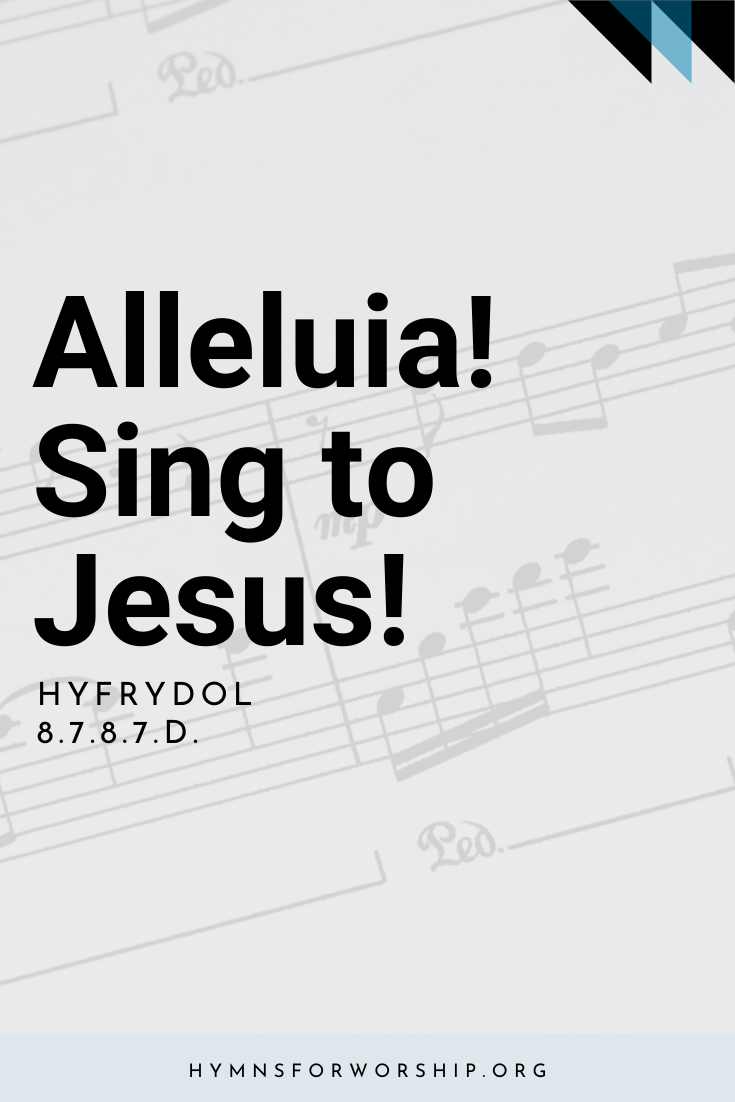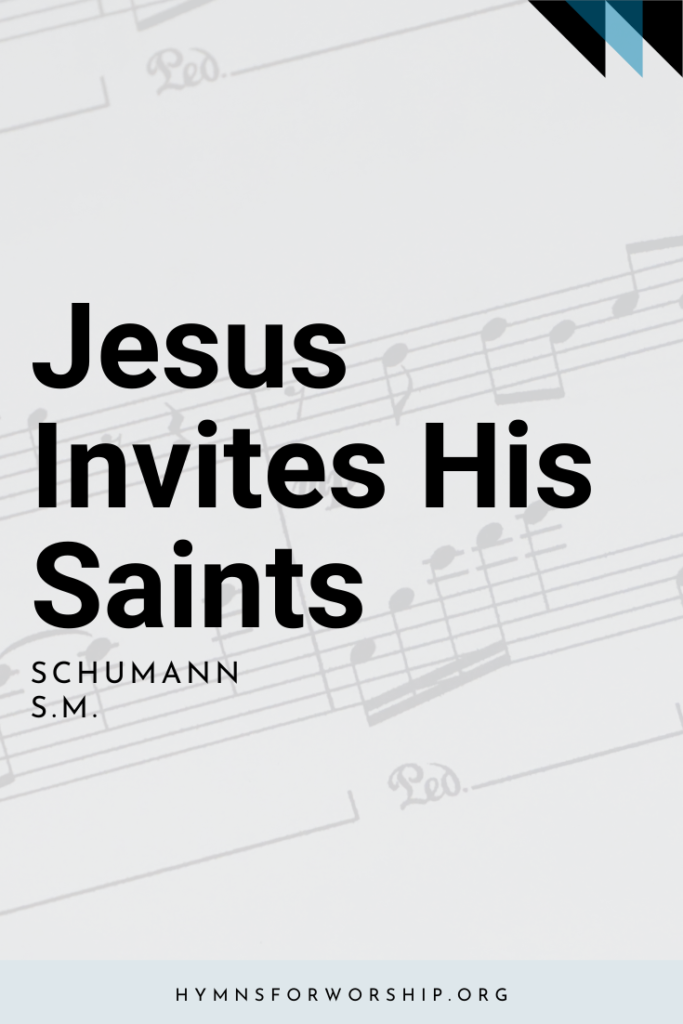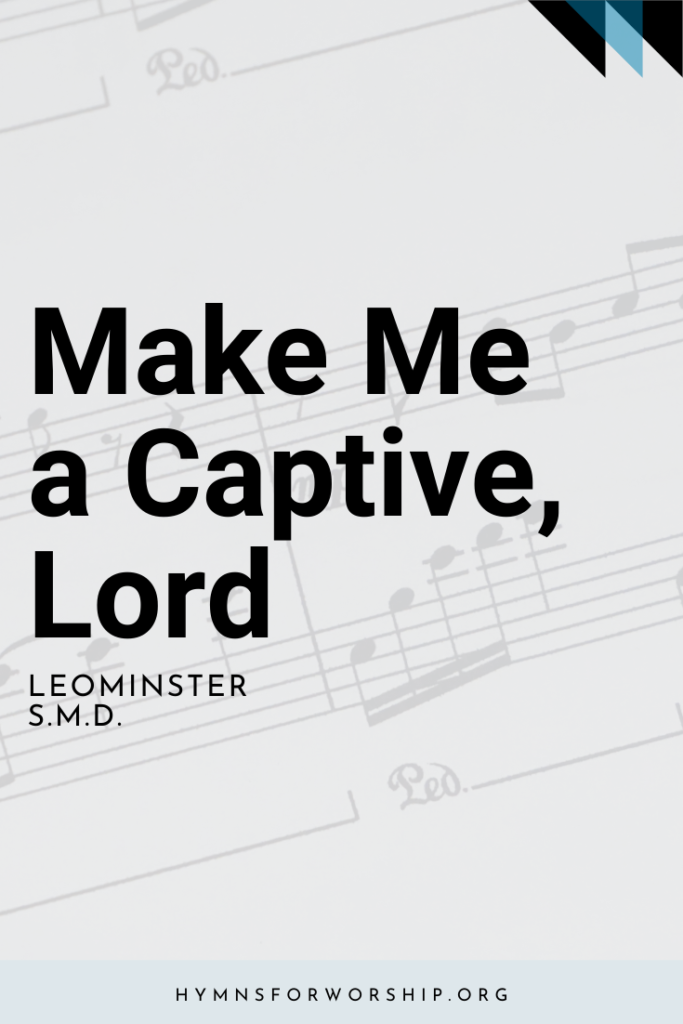JESUS CHRIST >> RESURRECTION & ASCENSION
SDAH 167
Alleluia! sing to Jesus! His the scepter, His the throne.
Alleluia! His the triumph, His the victory alone.
Hark! the songs of peaceful Zion thunder like a mighty flood.
Jesus out of every nation has redeemed us by His blood.
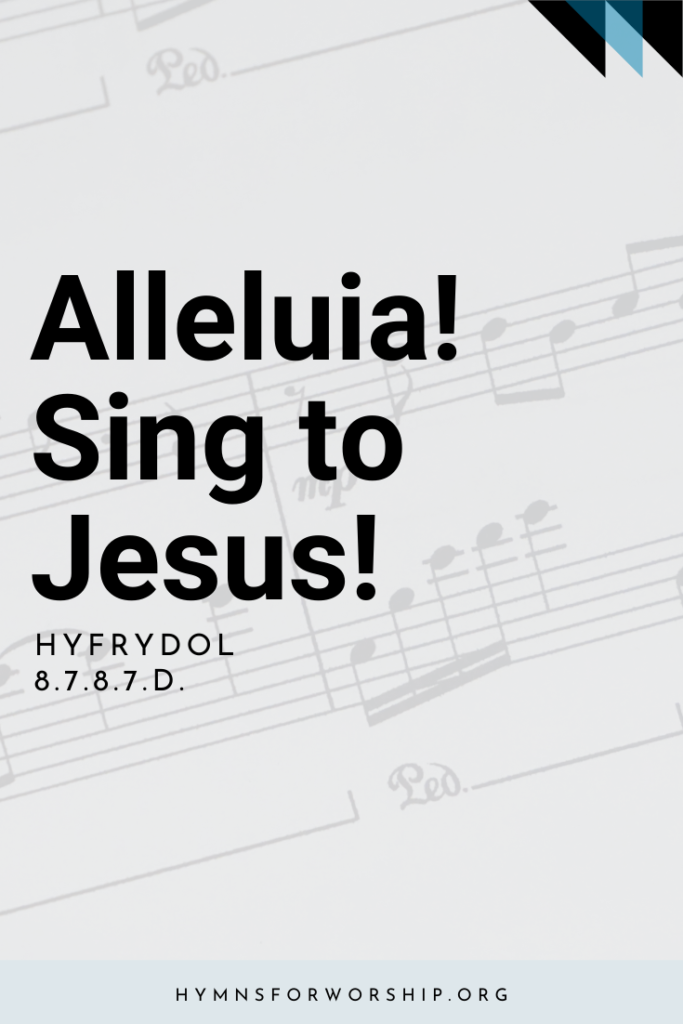
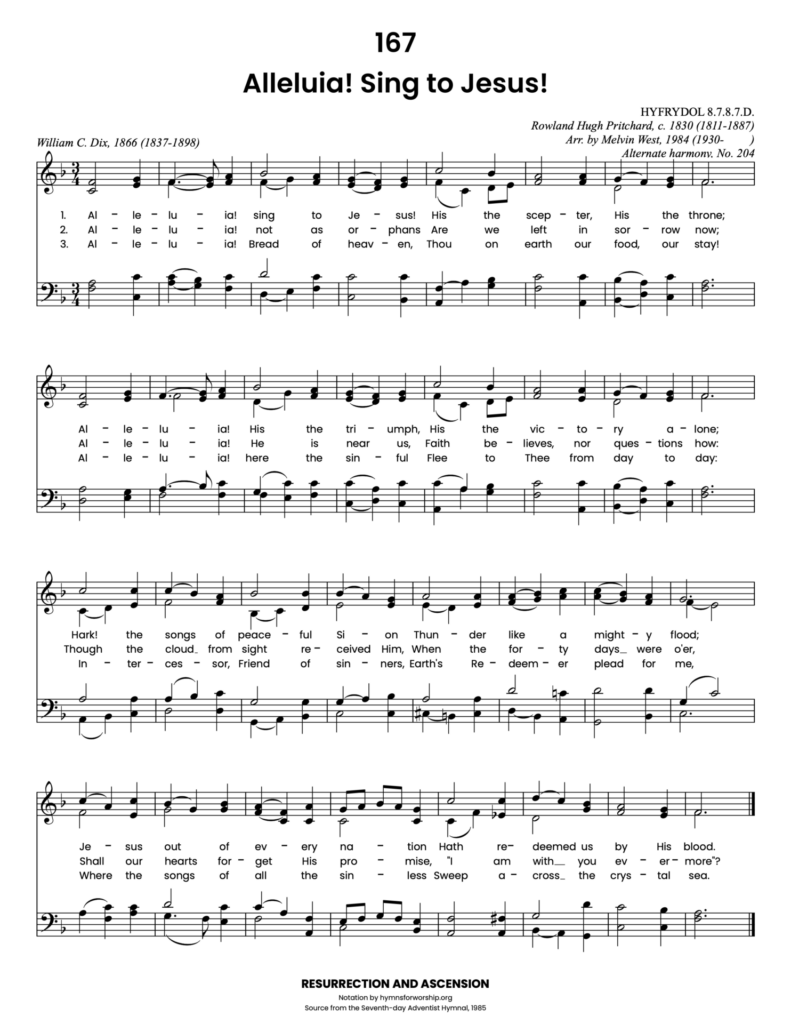
Get the hymn sheet in other keys here
For Worship Leaders
Make each hymn more meaningful with these helpful tools: Short, ready-to-use hymn introductions for church bulletins, multiple ways to introduce a hymn based on your worship theme and in-depth history and insights to enrich your song service.


Text
1
Alleluia! sing to Jesus! His the scepter, His the throne.
Alleluia! His the triumph, His the victory alone.
Hark! the songs of peaceful Zion thunder like a mighty flood.
Jesus out of every nation has redeemed us by His blood.
2
Alleluia! not as orphans are we left in sorrow now;
Alleluia! He is near us, faith believes, nor questions how;
Though the cloud from sight received Him when the forty days were o’er
Shall our hearts forget His promise, “I am with you evermore”?
3
Alleluia! bread of angels, Thou on earth our food, our stay;
Alleluia! here the sinful flee to Thee from day to day:
Intercessor, Friend of sinners, Earth’s Redeemer, plead for me,
Where the songs of all the sinless sweep across the crystal sea.

Hymn Info
Biblical Reference
(a) Rev 5:9 (b) John 14:18; Acts 1:9; Heb 13:5 (c) John 6:33; Matt 11:19
Author
William C. Dix (1837-1898)
Year Published
1866
Copyright
Arrangement copyright 1984 by Melvin West
Hymn Tune
HYFRYDOL
Metrical Number
8.7.8.7.D.
Composer
Rowland Hugh Pritchard (1811-1887)
Arranged
Melvin West, 1984 (1930-)
Tune Source
c. 1830
Alternate Harmony
SDAH 204
Notes
Make each hymn more meaningful with these helpful tools: Short, ready-to-use hymn introductions for church bulletins, multiple ways to introduce a hymn based on your worship theme and in-depth history and insights to enrich your song service.

